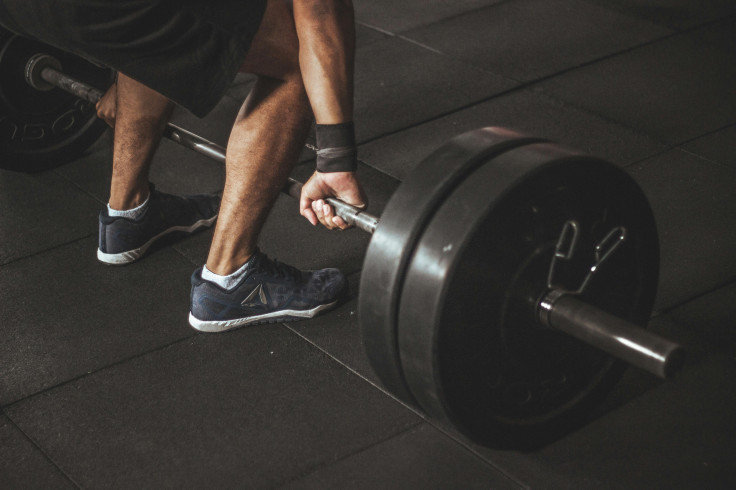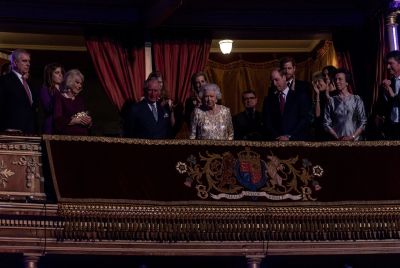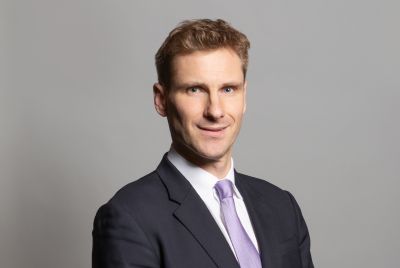More British Men Are Seeking Testosterone Therapy Because of Social Media: 'Unnecessary' Says NHS

KEY POINTS
- Social media is prompting more British men to seek unnecessary testosterone therapy, straining NHS clinics
- Doctors warn that unwarranted testosterone use can cause infertility, heart problems, and hormonal imbalance
- Experts urge men to seek proper medical evaluation before treatment and to prioritise lifestyle changes first
A growing number of British men are turning to testosterone replacement therapy (TRT), influenced by viral fitness trends and misinformation on platforms like TikTok and Instagram. According to sources, NHS endocrinologists are warning that social media is driving men to seek treatments they do not medically require.
Clinicians across the UK report a sharp rise in patients demanding testosterone after online influencers linked the hormone to improved energy, sex drive, and mood. Professor Channa Jayasena, chair of the Society for Endocrinology Andrology Network, said that hundreds of endocrinologists have noted a consistent increase in men arriving at NHS clinics after undergoing private blood tests promoted online.
'At the national meeting, we asked 300 endocrinologists across the UK; everyone is seeing patients from these clinics every week,' Jayasena explained. 'They are filling our clinics. We used to see people with adrenal problems and diabetes — and it's really affecting NHS care.'
The Dangers of Unnecessary Testosterone Use
Medical experts warn that unnecessary use of testosterone can disrupt the body's natural hormonal balance and lead to infertility, cardiovascular problems, and mood disorders. Harvard Health notes that while testosterone is vital for muscle mass, bone strength, and libido, artificially raising levels in healthy men can suppress the natural production of the hormone, resulting in long-term health complications.
Excessive testosterone can also increase the risk of heart attack and blood clots, and may cause swelling, insomnia, and aggressive mood changes. The NHS only prescribes TRT for men with clinically confirmed testosterone deficiency, verified through symptoms and repeated blood tests.
However, the rise of online clinics and influencer marketing has blurred medical boundaries. Several TikTok content creators are reportedly partnering with private clinics to promote 'discounted' hormone packages and at-home testing kits, in what appears to be a loophole around UK advertising laws that prohibit the marketing of prescription drugs.
@kmartfit How I only pay $169/mo for TRT #Trt #trtgains #trt101 #trtfamily #trttransformation #trtshots #trtshot #trtforlife #trtdays #trtcommunity #trtbeforeandafter #trtlife #trtgainz #trtformen #trtworld #trtnation #lowt #testosterone #testosteronelevels #testosteroneinjection #testosteronecypionate #testosteronegains #testosteronetherapy #testosteroneboosters #testosteroneshots #testosteroneshot #testosteroneshottime #testosteronehealth #testosteroneformen #testosteroneclinics #testosteronedeficiency #testosteronedecline #testosteroneeffects #testosteronegang #testosteronereplacement #testosteronerepacementtherapy #testosteroneproblems #testosteronebooster #testosteroneboys #testosteronechanges #testosteronedepresssion
♬ original sound - KMART
Who Actually Needs Testosterone Therapy?
The British Society for Sexual Medicine (BSSM) defines testosterone deficiency (TD) as a medically diagnosable condition caused by reduced hormone production in the testes or pituitary system, leading to symptoms such as low libido, erectile dysfunction, fatigue, and depression.
Guidelines state that testosterone therapy should only be initiated in men with:
- Total testosterone (TT) levels below 12 nmol/L or free testosterone (FT) below 225 pmol/L, measured on two separate morning tests.
- Persistent, clinically relevant symptoms such as erectile dysfunction, low libido, or unexplained fatigue.
Treatment without clear deficiency is not recommended, as testosterone levels fluctuate naturally throughout the day and can vary with stress, diet, or illness. The BSSM warns that inappropriate prescriptions may suppress natural fertility and create lifelong dependency.
Moreover, excessive testosterone use mirrors the effects of anabolic steroid abuse — causing testicular shrinkage, reduced sperm count, and cardiovascular stress.
A Social Media Health Epidemic
The online 'manosphere' movement, which glorifies physical dominance and biohacking, has contributed to the false belief that testosterone therapy can boost motivation and masculinity. Influencers often portray TRT as a wellness or lifestyle enhancer, using hashtags like #LowT, #TRTlife, and #biohackyourself to reach younger audiences.
@therealtrtpro Comment TRT and I’ll shoot you the info to the clinic I use👊🏼💪🏼@HARLEYMEDS #testosterone #trt #testosteronetherapy #trtgains #harleymeds #alpha #gains #beta
♬ original sound - THEREALTRTPRO
@daveaspreyofficial Still think testosterone replacement therapy (TRT) is bad for you? Watch this. 👆🏼 #DaveAsprey #biohacking #biohacker #biohacked #health #longevity #antiaging #aging #testosterone #trt #testosterone
♬ snowfall - Øneheart & reidenshi
But doctors say that such portrayals undermine legitimate endocrinology and spread misinformation. 'This isn't a supplement; it's a powerful hormone treatment that should only be used when clinically necessary,' said Jayasena. 'We are seeing men who are completely healthy being misled into lifelong therapy they don't need.'
The issue is compounded by the ease of access to private online clinics, where blood tests and consultations can cost between £1,800 and £2,200 (approximately between $2,358 and $2,883) per year, excluding follow-up care and fertility management.
What the Science Really Says
Evidence-based research shows that while testosterone replacement therapy can improve sexual function, muscle mass, and bone density in men with genuine deficiencies, it offers no proven benefit for men with normal hormone levels. A 2022 British Society review found that up to 75% of men over 40 maintain normal testosterone levels, and only a small percentage truly suffer from testosterone deficiency.
Harvard Health also emphasises that symptoms like tiredness, irritability, or ageing are not definitive indicators of low testosterone, despite popular belief. In fact, these signs may stem from other causes such as poor sleep, stress, or depression.
Experts recommend lifestyle interventions such as exercise, weight management, and balanced diet before considering hormonal therapy — as these can naturally raise testosterone levels and improve overall well-being.

The Bigger Picture
The NHS has launched investigations into potential breaches of medical advertising regulations, following reports that influencers are indirectly promoting prescription-only treatments through blood test giveaways and 'performance optimisation' packages.
Healthcare leaders stress that men should avoid obtaining testosterone through private online providers and instead consult NHS endocrinologists for proper evaluation and diagnosis.
'It's important to restore confidence in science over social media,' Jayasena said. 'Hormones are not lifestyle accessories — they're part of a delicate medical system.'
The rising popularity of testosterone therapy reflects not just a medical concern, but a cultural one — a growing pressure for men to 'optimise' themselves through biohacking rather than balance. Experts urge men to trust medical evidence, not influencers, reminding the public that real strength begins with knowledge, not quick fixes.
© Copyright IBTimes 2025. All rights reserved.




















